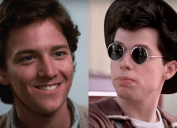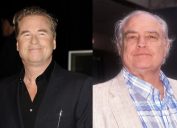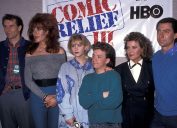Why Dennis Hopper Banned "Easy Rider" Co-Star Peter Fonda From His Funeral
The two actors feuded for years after starring in the 1969 hit.
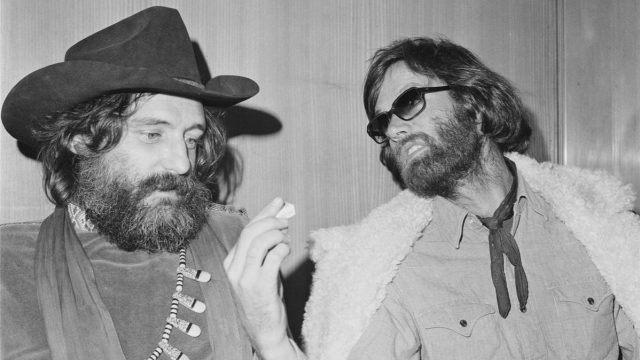
Released in 1969, the freewheeling road movie Easy Rider captured the zeitgeist and soon became the most successful independent production ever, grossing more than $60 million on a budget of less than $500,000. That success proved somewhat ironic, given that the film is about two counter-culture iconoclasts, played by screen legends Dennis Hopper (who also directed) and Peter Fonda, who hit the road and travel across the American Southwest seeking an escape from the oppressive strictures of capitalism. Moreover, a dispute over money—and, more significantly, artistic credit—would ultimately cause a rift between the co-stars that would continue for the rest of their lives. Keep reading to learn how the massively successful film altered the friendship of two Hollywood legends, to the point where Fonda was allegedly banned from Hopper's funeral.
RELATED: Oliver Stone Said Working With Richard Dreyfuss Was "The Single Worst Experience" of His Career.
They argued over who deserved credit for the screenplay.
Easy Rider had a curious production, quite literally fueled by drugs and booze, but whether intoxicants or hazy memories are to blame, the question of who deserved credit for the Academy Award-nominated screenplay proved to be a contentious one.
The script is officially credited to Hopper, Fonda, and Terry Southern (writer of Stanley Kubrick's Dr. Strangelove), but the drafting process was apparently anything but traditional. According to Fonda, he came up with the initial idea on his own and brought in Hopper and Southern after the fact, per SlashFilm. What followed was less a writing collaboration than substance-inspired improvisation, as the trio "began smoking dope in earnest and having a non-stop story conference," in Sourthern's words, which resulted in a loose plot framework. The final result was shaped during filming and included a lot of unscripted moments.
Southern later claimed he only granted the two stars co-writing credits because they asked for them (something he had to enter into arbitration with the Writers Guild of America to allow). According to an account of the script's creation in the Los Angeles Review of Books (LARB), Southern received only a 12-page treatment for the film from Hopper and Fonda, in which the duo would've been driving cars, not motorcycles.
"Neither of them are writers," Southern said, as quoted by the LARB. "They can't even write a [expletive] letter. [Giving them a credit] wasn't fair, but it didn't matter to me at the time because I was ultra secure…I didn't mind. Anyway, we were great friends at the time, so I went along with it without much thought."
Once the film became a success, Southern said, Fonda and Hopper started claiming more of the credit than they deserved—even fighting amongst themselves over who was the film's true author.
RELATED: How Bill Murray's Altercation on Groundhog Day Caused a 20-Year Feud With Director
Money was also an issue.
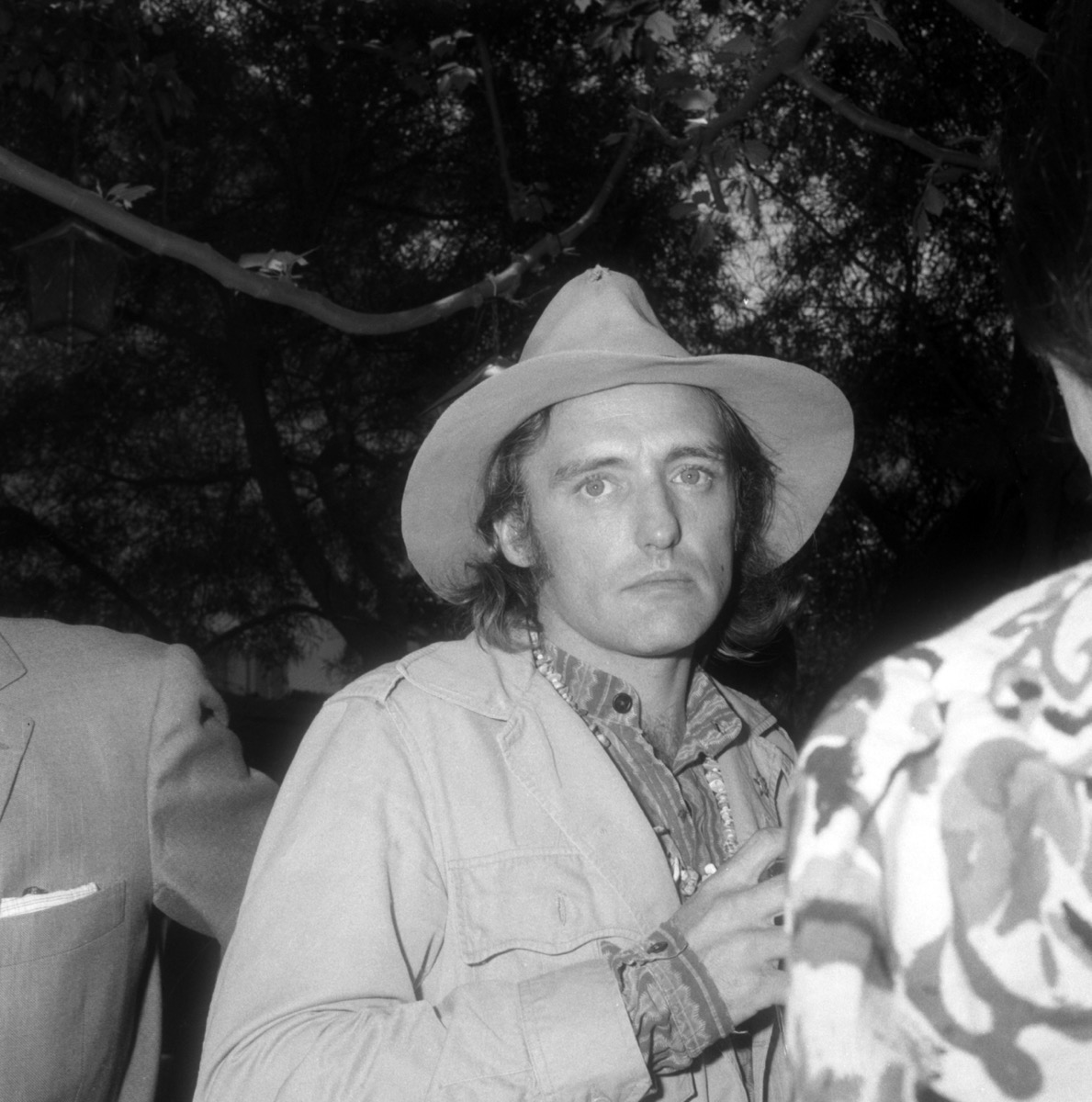
Hopper not only wrote Southern out of the story of Easy Rider, telling a journalist in 2001 that Southern only contributed the title, as reported by LARB, but downplayed Fonda's contributions, too.
"Twenty-seven years later, Dennis still believed that he and he alone wrote the screenplay for Easy Rider," Fonda wrote in his 1998 memoir Don't Tell Dad. "Of course he wasn't the sole writer of the screenplay to Easy Rider. Of course he still thinks he was."
This friction extended to determining who deserved to profit from the film's massive success. Ultimately, Hopper filed suit against Fonda in the '70s and again in the '90s seeking a greater percentage of the proceeds. The problem, according to the Wall Street Journal, arose from the fact that the profit-sharing agreement for the film had never been written down, and Hopper came to feel he'd been cheated out of what he deserved.
For a time, they appeared to be friendly in public.
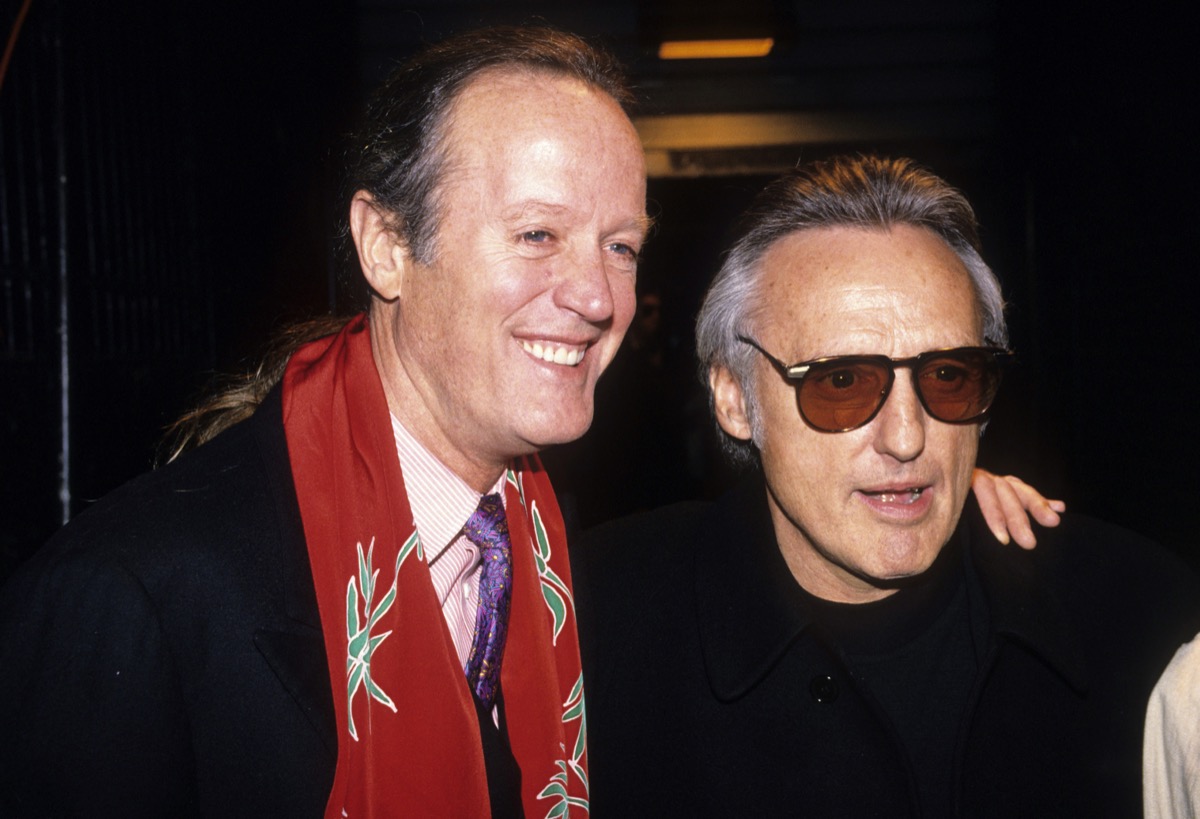
In the decades following the release of Easy Rider, the stars put up a good front, appearing, in public at least, to remain something like friends. They worked together again in the film The Last Movie in 1971. And, as Wall Street Journal put it, after his resurgent role in 1986's Blue Velvet, Hopper "gave Mr. Fonda a boost too" by inviting him to appear on a 1991 television special he hosted.
The two even joined in a business venture in the early '90s, co-backing a biker-themed restaurant located in West Hollywood and appearing chummy at its opening soiree. "You would have thought they were the greatest pals that had ever lived," said William Heyward, the associate producer of Easy Rider, as quoted by WSJ.
The feud reached a breaking point in the '90s.
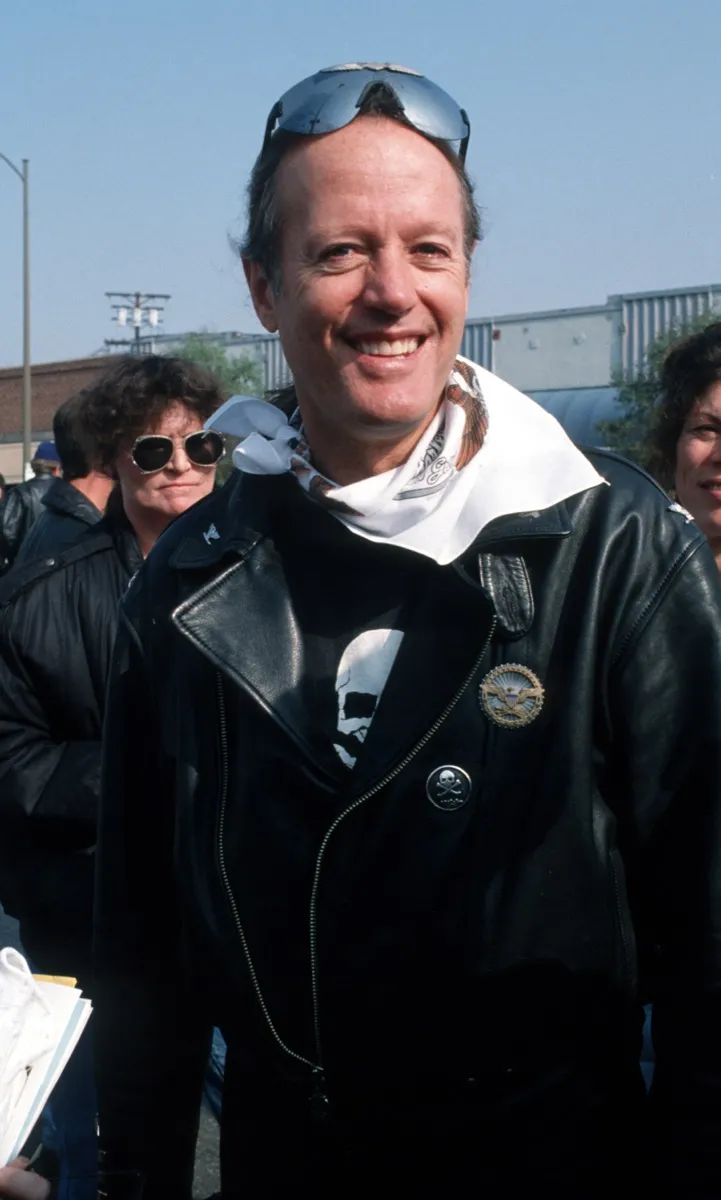
However, things fell apart shortly thereafter. In 1992, Fonda signed an agreement to give Hopper his "fair share" of the profits from Easy Rider, WSJ reported. However, those good vibes dissipated following Hopper's appearance on The Tonight Show in 1994, during which he told host Jay Leno that actor Rip Torn, who was originally up for the role in Easy Rider that ultimately went to Jack Nicholson, was dumped from the film after he threatened Hopper with a knife during a dinner.
Torn denied the claim and sued Hopper for defamation, per WSJ. When Hopper turned to Fonda, who was also at the dinner, to corroborate his story, his co-star refused, claiming in a deposition that the incident never occurred.
"Dennis was perhaps naively looking for Peter to bail him out of that lawsuit," Heyward told WSJ. "I think Dennis was very frustrated and annoyed." Shortly thereafter, Hopper's attorney sent Fonda a letter claiming Hopper deserved sole credit for the Easy Rider screenplay.
According to Heyward, that letter is the reason Fonda refused to honor his 1992 agreement with Hopper over the film's profits, prompting the latter to file a lawsuit in 1996. The matter was ultimately settled out of court, according to SlashFilm.
(In 1998, Hopper lost the defamation suit; Torn was awarded $475,000 in damages, according to the Los Angeles Times.)
RELATED: Burt Reynolds and Marc Summers Almost Fought Each Other on '90s Talk Show.
Fonda claimed he was barred from Hopper's funeral.
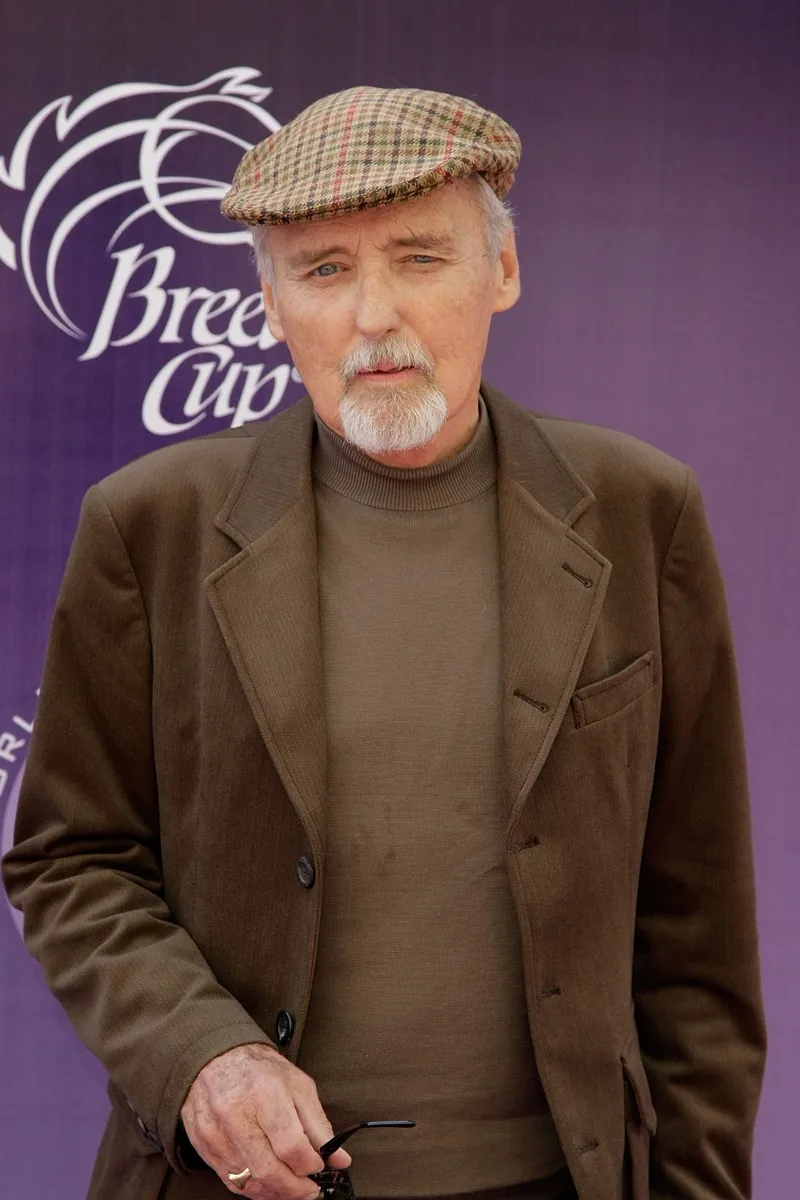
Even after being sued, Fonda seemed willing to bury the hatchet with Hopper. "One can imagine the love-hate relationship I've had with him all this time," he wrote in his memoir, as quoted by Express UK. "I didn't think twice about his vow never to speak to me again…I go to see all his work, and I call him to tell him how I liked it."
Hopper apparently felt no such reciprocity and was blunt about what he thought of Fonda, claiming they'd never been close. "We weren't friends when we shot [Easy Rider]," he said in an interview with The Transom, as quoted by Far Out Magazine. "Jack Nicholson and I are friends."
The actor proved more than willing to hold a grudge as long as he lived, refusing to bury the hatchet even as his health worsened in the '00s. As Fonda recalled, "I knew that Dennis was dying and I made many attempts to see [him]…But he refused. The funeral service was in a chapel in Taos, New Mexico. I rented a private jet and flew in, but I was not allowed in the chapel. So as much as I wanted to pay my respects, to Dennis and his family, I was not allowed to be a part of it."
Hopper died in 2010 at age 74 of complications of prostate cancer.


